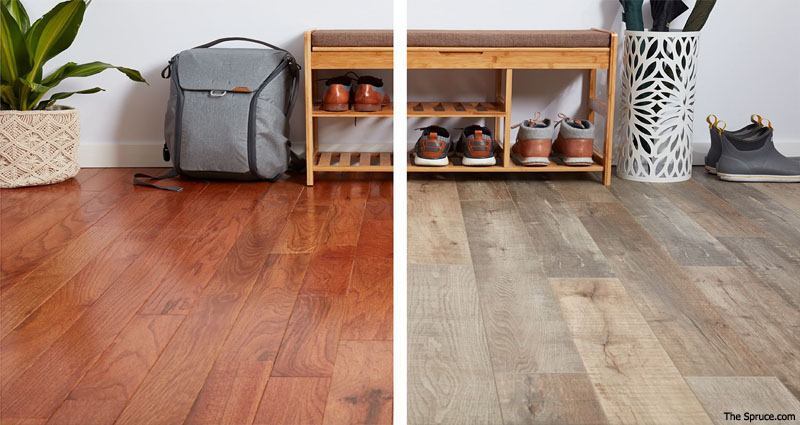Comparing Solid Hardwood Floors With Engineered Hardwood Flooring
Engineered hardwood is the new kid on the hardwood flooring block, so to speak. Both traditional and engineered wood floors bring benefits and downsides, as explained below. Read on to figure out whether engineered or traditional solid lumber floors are best for you.
Conventional Hardwood Floors
Solid hardwood floors may be refinished over and over again since they are usually milled to a ” thickness. Traditional wood flooring is cut this way so that the hardwood flooring can later be sanded and re-sealed. Thanks in part to this process, hardwood floors remain beautiful and durable for decades – it’s not unusual for them to last fifty years or longer.
However, there’s also a significant disadvantage of conventional wood flooring: It is affected by water and temperature. Naturally, wood expands in hot/moist settings and contracts in cold/dry conditions. This requires contractors to leave small gaps around the edges of hardwood flooring … Read the rest









